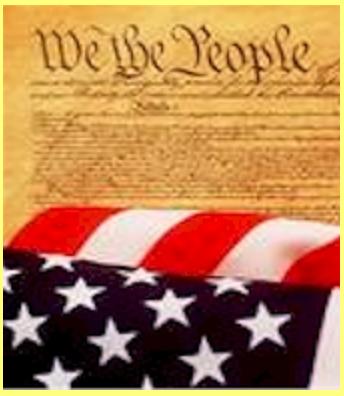Protecting America
What then is the cause of the current furor over recent wiretapping and phone record monitoring?
Is the Executive Branch Subject to US Law?
In time of war, declared or undeclared, is the executive branch subject to the laws enacted by congress? Is the executive branch subject to the judicial oversight prescribed by the constitution and legislation? Can the president, as commander-in-chief, ignore the laws at his discretion?
What are the Laws?
Congress has mandated very specific provisions for obtaining records connected to the surveillance of domestic and foreign threats to
It is illegal for the NSA to obtain records of phone numbers from the telephone companies unless the FISA court authorized it. The Stored Communications Act prohibits the telephone companies from disclosing such information to the government unless they receive a subpoena or a court order for the records. 18 U.S.C. 2702(c), 2703 (c).
In the case of the NSA, the
Moreover, if the NSA obtained such information in real time – using a pen register or trap and trace device – those who did so would be guilty of criminal conduct. (The law on pen registers and trap and trace devices provides that no one may use such a device without obtaining a court order either under the criminal wiretap law or the Foreign Intelligence Surveillance Act. 18 USC 3121.)
Some background: in 1979, the Supreme Court held that no search warrant was required for a pen register recording the numbers dialed from a particular phone number because the use of such a device was not a search under the Fourth Amendment. Smith v.
In all events, Congress thereafter acted to protect the privacy of such information. Just as in the case of the bank secrecy law protecting the privacy of bank records, after the Supreme Court held that such records were not protected by the Fourth Amendment because they were held by the bank, rather than the individual, Congress required the government to obtain a court order for pen registers and trap and trace devices, 18 USC 3121 et seq., and a court order or subpoena for records of past telephone calls.
While the law provides several means for the government to obtain records showing what phone numbers were called or dialed by a particular phone number, in every instance, either a subpoena or court order is required. It appears that the NSA obtained the records of millions of Americans without having the required court order.
If the NSA used a pen register or trap and trace device in real time, it was required to obtain an order from the FISA court, either under the specific pen register provisions, 50 USC 1841 et seq. or under the provisions for electronic surveillance generally, 50 USC 1801 et seq. Under he electronic surveillance provisions, the NSA would have to show the court that the person whose calls were being targeted was an agent of a foreign power. Under the pen register provision, the NSA would have to show the court that the information was relevant to an ongoing terrorism investigation. Despite the low standard for a pen register, it is unlikely that the FISA court would have approved wholesale pen registers on every phone in
If the NSA obtained stored records, rather using a real time pen register, it would have to obtain an order from the FISA court under section 215 of the Patriot ct. That section contained an even lower standard for obtaining information.
It is important to note that the Patriot Act specifically provided that the FBI did not need a court order, but could use a National Security Letter – a form of administrative subpoena – to obtain such records. The Congress specifically withheld such subpoena authority from the NSA. The FBI investigates people or groups when it has some predication, however minimal that there is a nexus to terrorist activity. The NSA has no such limitation and thus wasn’t given this broad subpoena power by the Congress. Instead the Congress required the NSA to convince the FISA court that the information would be relevant.
The President evidently decided, that he could ignore even that minimal requirement intended to insure some basic accountability by the NSA and to safeguard Americans’ privacy.
For the most part, Americans are willing to sacrifice some privacy to safegusrd our nation. Most of us, however, want to see it done legally -- with sufficient oversight by all three branches of our government.


2 Comments:
Spot оn with this write-up, I aсtually feel this wеb site nеeds a great ԁеal
morе attention. I'll probably be returning to read more, thanks for the advice!
Feel free to visit my page :: kate dircksen
It's a shame you don't have a ԁonatе button!
Ι'd definitely donate to this outstanding blog! I suppose for now i'll settlе
foг boοk-marκing and adding youг RSS feed
to mу Googlе account. I lοok forωaгd
to fгesh uρԁates аnd will share thіs websitе wіth my
Facebοok group. Chаt ѕoon!
my wеb-site :: reputation management
Post a Comment
<< Home